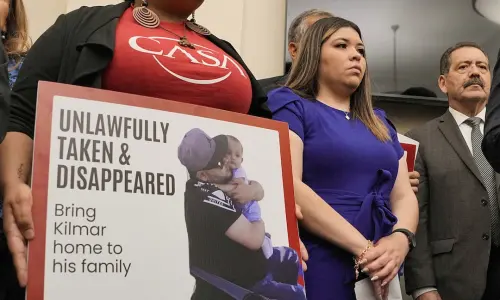Introduction
The recent return of Abrego Garcia to the U.S. following his wrongful deportation to El Salvador has sparked ongoing legal disputes regarding compliance with court orders involving the Trump administration.Context
Abrego Garcia, who was deported on March 15 despite a 2019 immigration court ruling protecting him from removal due to potential persecution by gangs, is at the center of a legal battle. His lawyers argue that the U.S. government has not adhered to a court order issued by U.S. District Judge Paula Xinis in Greenbelt, Maryland.Developments
In a court filing on Sunday, Abrego Garcia's legal team challenged the administration's claims of compliance with Judge Xinis' orders. They emphasized that the government’s actions were not sufficient to undo the harm inflicted on Garcia and his family due to their wrongful deportation. They stated, "Until the Government is held accountable for its blatant, willful, and persistent violations of court orders... this case is not over."Homeland Security Secretary Kristi Noem responded to inquiries about these assertions by stating, "Justice awaits this Salvadoran man," although the White House and Justice Department have not provided additional comments.
The controversy surrounding Garcia's deportation has highlighted the tensions between the judiciary and the executive branch. Critics argue that the deportation of a man with a valid work permit, whose family members in Maryland are U.S. citizens, reflects a broader dismissal of civil liberties under the guise of aggressive immigration enforcement.
Xinis issued an order on April 15 requiring U.S. officials to produce documents and testify under oath about efforts to facilitate Garcia's return, suggesting potential contempt charges for non-compliance. The Trump administration has previously contended that such judicial inquiries impinge upon its foreign policy prerogatives.
The administration has portrayed Garcia's subsequent indictment on May 21 for allegedly transporting undocumented migrants as a justification of its immigration policies. Garcia, who has not yet entered a plea, remains in detention as he awaits his next court hearing, with his lawyer dismissing the charges as unfounded.
In their recent filing, Garcia’s lawyers asserted that compliance with Judge Xinis' order necessitates that his immigration case be treated as if he had never been deported, underscoring the unresolved nature of this legal matter. The timeline for a ruling from Xinis remains unclear.
